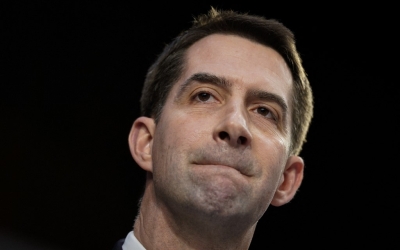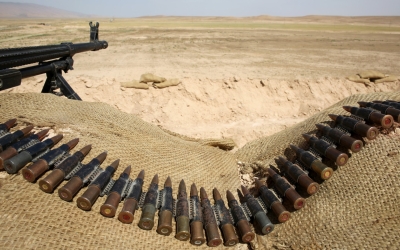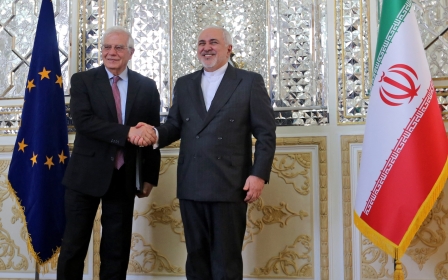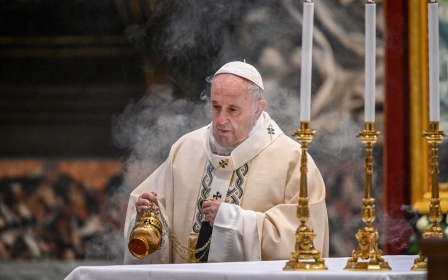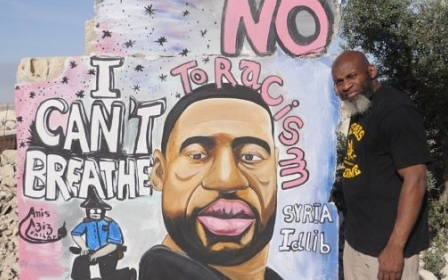Biden launches deadly air strikes against Iran-backed groups in Syria
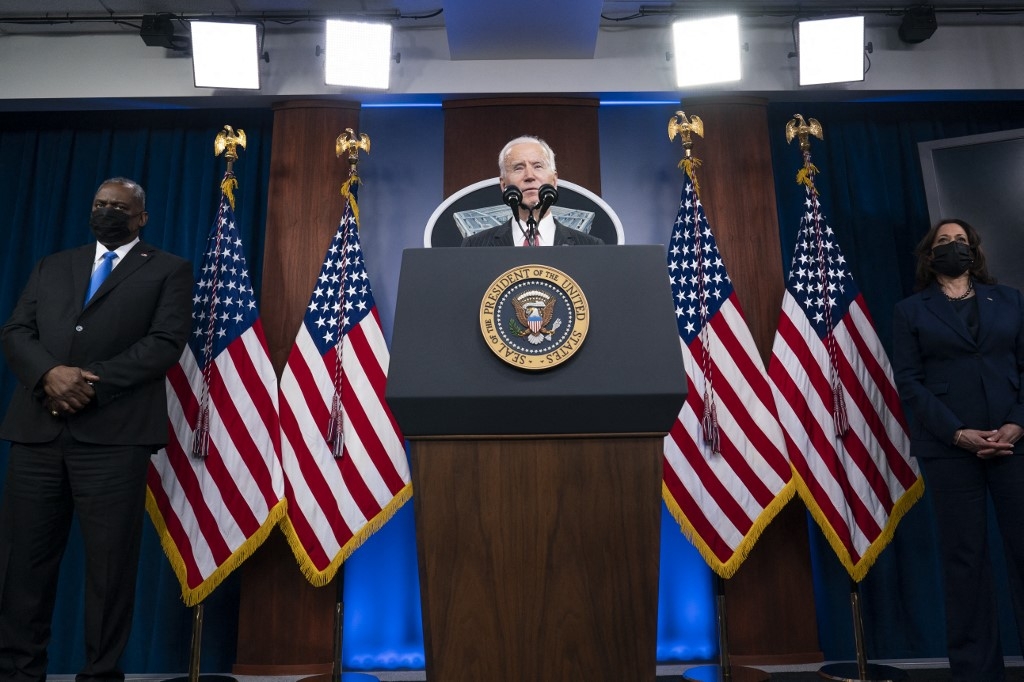
Deadly US air raids targeted the positions of Iran-backed armed groups in eastern Syria late on Thursday, in what the US defence department called a "defensive precision strike".
The Pentagon said the strikes were authorised by US President Joe Biden in response to rocket attacks against US-led coalition forces in Iraq earlier this month.
At least 17 pro-Iran fighters were killed in the strikes along the Iraqi border, according to the Syrian Observatory for Human Rights, a UK-based activist group.
Reuters also reported at least 17 deaths, quoting local sources and one medical source.
"The strikes destroyed three lorries carrying munitions... There were many casualties. Preliminary indications are that at least 17 fighters were killed, all members of Popular Mobilisation Forces, (PMF)," the director of the observatory, Rami Abdul Rahman, told AFP, referencing the powerful coalition of pro-Iran Iraqi paramilitaries.
Iran's foreign minister, Mohammad Javad Zarif, spoke to his Syrian counterpart on Friday, hours after the US strikes.
"The two sides stressed the need of the West to adhere to UN Security Council resolutions regarding Syria," Iranian government website Dolat.ir said.
Russia said on Friday it was closely monitoring the situation and that it was in constant contact with the Syrian authorities.
"We strongly condemn such actions," Russia's foreign ministry's spokeswoman Maria Zakharova said.
"We call for the unconditional respect of the sovereignty and territorial integrity of Syria."
Kremlin spokesman Dmitry Peskov told reporters on a conference call that he could not say whether the US had notified Russia of its plans in advance, adding that operational contacts were made through the military.
'Multiple facilities'
The Pentagon said the strikes, the first of their kind since Biden's inauguration, hit "infrastructure" used by the groups.
"These strikes were authorised in response to recent attacks against American and Coalition personnel in Iraq, and to ongoing threats to those personnel," Pentagon spokesman John Kirby said in a statement.
"Specifically, the strikes destroyed multiple facilities located at a border control point used by a number of Iranian-backed militant groups, including Kataib Hezbollah (KH) and Kataib Sayyid al-Shuhada (KSS)." Kataib Hezbollah and Kataib Sayyid al-Shuhada are members of the PMF.
There was no official comment from Syria on the strikes, but state-owned Ekhbariya TV quoted its reporter in Deir Ezzor as stating that strikes had taken place at dawn against several targets near the Syrian-Iraqi border.
A US official, speaking on condition of anonymity to Reuters, said the decision to carry out the strikes was meant to send a signal that, while the US wanted to punish the militias, it did not want the situation to spiral into a bigger conflict.
The official added that Biden was presented with a range of options and one of the most limited responses was chosen.
'Proportionate military response'
In mid-February, a rocket assault on a military base in northern Iraq's Erbil killed a civilian contractor and injured American service members. On Sunday, rockets also targeted the US embassy in central Baghdad without causing any casualties.
Earlier this week, commanders of Iran-backed armed groups in Iraq told Middle East Eye that the attack on Erbil was aimed at “disciplining the Kurdish authorities” and not meant as a message to the US.
However, the commanders insisted they are unaware of who exactly carried out the 15 February rocket attack on the capital of the autonomous region.
Iraqi authorities say 11 missiles targeted al-Harir military base, which hosts US troops, and Erbil international airport, killing the contractor and wounding nine others, including a US solider.
An unknown armed group called the "Guardians of Blood'' claimed responsibility for the attack via a Telegram channel close to the Iranian-backed Shia factions, saying the perpetrators launched 24 missiles 7km from the Harir base, "accurately hitting their targets".
In another statement issued the next day, the group said the attack targeted the "American occupation" forces that will not be safe "even if they transfer their bases" to Kurdistan.
At the time, Washington condemned the Iraq attacks without blaming them on Iran-backed groups.
But on Thursday, the Pentagon called the air strikes in Syria a "proportionate military response" to the incidents in Iraq.
"The operation sends an unambiguous message: President Biden will act to protect American and Coalition personnel," said Kirby.
"At the same time, we have acted in a deliberate manner that aims to de-escalate the overall situation in both eastern Syria and Iraq."
Biden had spoken to Iraqi Prime Minister Mustafa al-Kadhimi on Tuesday to address the rocket attacks.
"They discussed the recent rocket attacks against Iraqi and Coalition personnel and agreed that those responsible for such attacks must be held fully to account," the White House said in a statement after the call.
Direct talks
The recent escalation between the US and Iran comes as the two countries remain at an impasse about reviving the Iran nuclear deal.
The agreement, known as the Joint Comprehensive Plan of Action (JCPOA), saw Iran scale back its nuclear programme in exchange for lifting sanctions against its economy.
Former President Donald Trump had abandoned the deal and started piling sanctions on Iran as part of his maximum pressure campaign.
In turn, Tehran began to loosen its commitments to the agreement, in part by increasing its uranium enrichment.
As a candidate, Biden had vowed to revive the multilateral pact, but the US administration wants Iran to return to full compliance with the deal first. Iranian officials, however, argue that Washington should go back to the JCPOA first as the party that nixed the agreement.
Last week, the Biden administration said it was ready for direct talks with Iran to resolve the issue.
Middle East Eye delivers independent and unrivalled coverage and analysis of the Middle East, North Africa and beyond. To learn more about republishing this content and the associated fees, please fill out this form. More about MEE can be found here.


